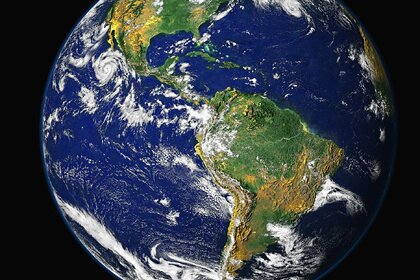
Japanese and American researchers have named organisms that are capable of surviving on Earth in one billion years. This was reported by the technology blog ExtremeTech, citing research by Kazumi Ozaki from Toho University in Japan and Chris Reinhard from Georgia Institute of Technology.
The US National Aeronautics and Space Administration (NASA) has asked experts to simulate the Earth's climate in a billion years. The experimental data showed that by that time the amount of oxygen in the atmosphere will decrease by almost 100 times due to the heating of the Sun against the background of its aging.
By that time, it will have warmed up to such a temperature that it will begin to break down carbon dioxide. As a result, the decarbonization process will start, photosynthesis will stop. As a result, it turned out that only primitive bacteria can survive, since they do not need oxygen to exist.
Earlier, scientists at the University of Bremen in Germany found microorganisms that can grow and develop in the Martian atmosphere. According to the researchers, based on cyanobacteria, or blue-green algae, it is possible to create life support systems for people who will live on the surface of Mars.

